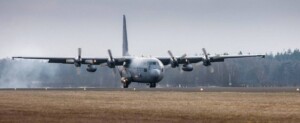El Burhan: ‘Unamid mission in Darfur will end in October’
Lt Gen Abdelfattah El Burhan, chairman of the Sovereign Council and Commander-in-Chief of the Sudanese army, emphasised in a telephone call with US Assistant Secretary of State Tibor Nagy and US Envoy to Sudan Donald Booth that the Unamid peacekeepingmission in Darfur will end in October.
 Unamid peacekeepers patrolling at night in East Darfur, October 2012 (Albert González Farran / Unamid)
Unamid peacekeepers patrolling at night in East Darfur, October 2012 (Albert González Farran / Unamid)
Lt Gen Abdelfattah El Burhan, chairman of the Sovereign Council and Commander-in-Chief of the Sudanese army, emphasised in a telephone call with US Assistant Secretary of State Tibor Nagy and US Envoy to Sudan Donald Booth that the Unamid peacekeepingmission in Darfur will end in October.
El Burhan said that the new UN mission in Sudan must be set up according to Sudan’s letter to the United Nations dated February 27, and the ‘national vision’ presented to the United Nations yesterday. This letter detailed the request of the Sudanese government, sent in January, to seek a Security Council mandate to establish, as soon as possible, a Chapter VI peace support operation in the form of a special political mission with a strong peacebuilding component.
Chapter VI of the United Nations Charter stipulates that the international assistance aims to support the maintenance, monitoring, and building of peace, but not the use of force to prevent violent conflict, as is the case of Chapter VII.
According to a statement issued by army spokesman Brigadier Amer El Hasan, El Burhan also urged the American officials to remove Sudan from the list of countries that sponsor terrorism, and support the ongoing peace negotiations in the South Sudanese capital Juba.
At the end of March, a draft resolution to the UN Security Council suggested that the current Unamid mission, that came into existence in 2007, could be disbanded as early as May 1. Protection of civilians, the primary mandate of Unamid, would be transferred to Sudan’s interim government.
A “new political, peace support and peace-building mission” titled United Nations Political and Peacebuilding Integrated Mission in Sudan (UNPPIMS), would then be set up for an initial period of one year, according tot the draft resolution. It would deploy 2,500 police officers and a battalion of a rapid reaction force (between 500 and 800 personnel). The current Unamid mission deploys more than 4,300 soldiers, 2,100 police officers, and around 1,500 civilian employees.
On March 30, the UN Security Council unanimously extented Unamid’s term in Darfur until the end of May.
Special report
On March 12, the Chairperson of the African Union and the UN Secretary-General sent a detailed special report (text available in Arabic too) to the Security Council. It contains an assessment of the situation on the ground in Darfur, an update on the peace process, information on the status of previously handed-over team Unamid sites, recommendations on the appropriate course of action regarding the drawdown of the mission and options for a follow-on presence to the mission, based on the views and the needs of the government of the Sudan.
The report also gives an overview of human rights violations from October 2019 until the end of January 2020 registered by Unamid. It states that the handover of Unamid sites and assets was suspended after the looting of the Unamid ‘super camp’ in Nyala at the end of December 2019, and the former Unamid camp in El Geneina. It plans to have closed all sites at October 31, except for a small logistical base in El Fasher.
The UN Secretary General and the Chairperson of the African Union Committee fear that some of the largest camps for internally displaced persons, including Kalma, “will remain volatile, not only from external threats, such as militia attacks, but also from internal splits among different factions”. “Unless the departure of Unamid is managed in such a way that alternative local and national protection capacities, with the confidence of internally displaced persons, are in place, the drawdown process itself could become vulnerable.”
Addressing the continued economic crisis is a political imperative, the report said. “The failure to improve the living conditions will render the transitional Government exposed to internal and external shocks.”
According to the report, a post-Unamid UN presence in Sudan should aim at:
- Supporting reform of the constitution and holding elections.
- Supporting the implementation of peace agreements in the conflict-affected areas, including ceasefire monitoring and disarmament, demobilization and reintegration, and accountability and transitional justice.
- Supporting national-led peacebuilding and the strengthening of human rights and rule of law institutions, and the scaling-up of support for recovery and development to build resilience and mitigate protection risks.
- Facilitating international support for economic reform that would set the country on a path to sustainable development.
The Unamid budget for the first three months of 2020 is $130 million.
Briefing Security Council
On April 24, UN Under-Secretary-General for Peace Operations Jean-Pierre Lacroix and UN Under-Secretary-General for Political and Peacebuilding Affairs Rosemary DiCarlo briefed the Security Council (text available in Arabic too) on Unamid, Darfur and Sudan.
Lacroix saw progress with regard to women’s rights, political reform and accountability, but considered the situation ‘fragile’. He called on the Sudan Liberation Army/Abdul Wahid faction to join the Juba peace talks.
He thinks the Unamid drawdown process must be managed carefully, “taking into account the ongoing threats to civilians in several areas of Darfur and the level of anxiety among the most vulnerable populations over Unamid’s exit. “The Mission’s drawdown should not signal that there are no more concerns related to the protection of civilians in Darfur.”
Di Carlo assesses the situation in Sudan as “clearly dire”. “The need for support is real and urgent”, she added.
In his reaction Sudan’s Permanent Representative (Ambassador) Omer Mohamed Ahmed Siddig stated that the “overall security situation in Darfur has largely been stable”. He stressed that the Sudanese government “is able and willing to perform all of its responsibilities in Darfur, including protection of civilians, addressing the root causes of the conflict, promoting human rights and building a sustainable peace”.
He emphasised that “the current situation in Darfur no longer necessitates any Chapter VII provisions”. “I would like to stress that any discussion involving reference to Chapter VII will not obtain the consent of my government.”
Radio Dabanga’s editorial independence means that we can continue to provide factual updates about political developments to Sudanese and international actors, educate people about how to avoid outbreaks of infectious diseases, and provide a window to the world for those in all corners of Sudan. Support Radio Dabanga for as little as €2.50, the equivalent of a cup of coffee.












 and then
and then